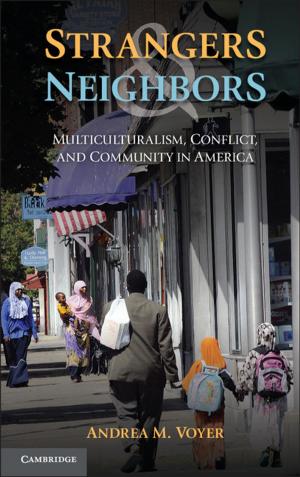Social Pedagogy for the Entire Lifespan
Volume II
Nonfiction, Social & Cultural Studies, Social Science, Sociology| Author: | ISBN: | 9783867417990 | |
| Publisher: | Europäischer Hochschulverlag | Publication: | July 13, 2012 |
| Imprint: | Language: | English |
| Author: | |
| ISBN: | 9783867417990 |
| Publisher: | Europäischer Hochschulverlag |
| Publication: | July 13, 2012 |
| Imprint: | |
| Language: | English |
The ambition of this two-volume publication is to illustrate the applicability of social pedagogy – as an academic and professional paradigm – to work with the most diverse target populations. It is launched at a moment when important and highly interesting developments can be observed in the United Kingdom: a country without a traditional social pedagogy model has started importing social pedagogy from countries with a social pedagogy tradition. Social Pedagogy for the Entire Lifespan illustrates how social pedagogy – as a model in theory and practice – has been and is currently being used, around and across Europe, for work with people of all age groups. Volume II proposes chapters on work with adults (including social problems, physical and mental disabilities) and older people, written by authors based in Belgium, Denmark, Norway, Poland, Spain, Sweden and Switzerland. Readers will find chapters discussing the implications regarding the use of educational theories to conceptualise social pedagogy, as well as the relevance of life-long learning debates, not only in academia but also in politics. The global (worldwide) dimension is covered by a chapter on the relationship between Latin American and European social pedagogy.
The ambition of this two-volume publication is to illustrate the applicability of social pedagogy – as an academic and professional paradigm – to work with the most diverse target populations. It is launched at a moment when important and highly interesting developments can be observed in the United Kingdom: a country without a traditional social pedagogy model has started importing social pedagogy from countries with a social pedagogy tradition. Social Pedagogy for the Entire Lifespan illustrates how social pedagogy – as a model in theory and practice – has been and is currently being used, around and across Europe, for work with people of all age groups. Volume II proposes chapters on work with adults (including social problems, physical and mental disabilities) and older people, written by authors based in Belgium, Denmark, Norway, Poland, Spain, Sweden and Switzerland. Readers will find chapters discussing the implications regarding the use of educational theories to conceptualise social pedagogy, as well as the relevance of life-long learning debates, not only in academia but also in politics. The global (worldwide) dimension is covered by a chapter on the relationship between Latin American and European social pedagogy.















